Guinea Pig Hay: How to Choose the Right Hay for Your Guinea Pig
One of the most important things you can do for your piggies is make sure they have the right food. In this blog you wil discover how to choose the right hay for your guinea pig and why it's so important.

If you’ve recently welcomed a guinea pig into your home, you may be wondering what type of hay to feed them.When it comes to picking the best hay for your guinea pig, it’s important to understand that not all hay is created equal. Different types of hay provide different benefits and can be used in various ways to ensure your pet is getting the nutrition they need After all, the right hay is essential for their health and wellbeing. From timothy hay to oat hay and more, there are so many options out there that it can be hard to choose.
Guinea pigs are cute and cuddly pets that are famous for their gentle natures and affectionate personalities. Feeding your guinea pig the right food is essential for keeping them healthy and happy. Among the most important foods for your guinea pig is hay. In this blog post, we will talk about guinea pig hay and how to choose the right one for your guinea pig.
Types of Hay
What kind of hay can guinea pigs eat? Hay is a critical part of your guinea pig's diet, and it's vital to choose the best one for your pet. The most common types of hay available in the market are Timothy Hay, Orchard Hay, and Alfalfa Hay. Timothy hay is low in calcium and protein, making it an ideal choice for adult guinea pigs. Orchard hay is high in fiber and good for digestion. Alfalfa hay is high in calcium, and it's essential for young guinea pigs or pregnant or nursing guinea pigs.
Quality of Hay
The quality of hay is essential because it can impact the overall health of your furry friend. When choosing hay, look for hay that is fresh, green, and fragrant. Avoid hay that is dusty or yellowish. Additionally, if the hay is too coarse, it can be difficult for your guinea pig to eat. Hay that's too soft may be too much of a sugar rush for your pet, which can lead to obesity, so it's essential to choose hay that is just right.
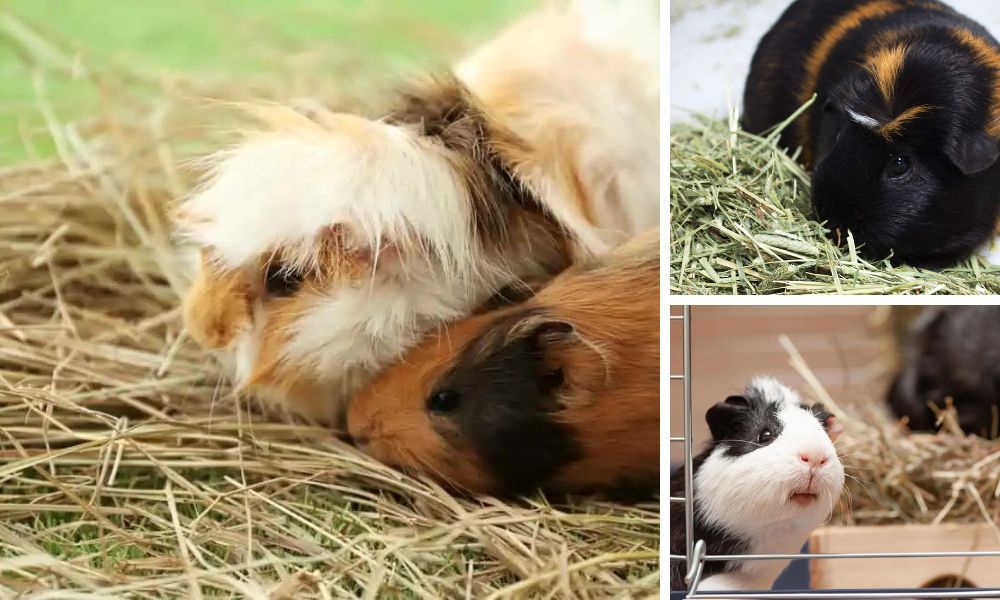
Storage
Hay is vulnerable to mold, so it's crucial to store it correctly. Once you have found the right hay, store it in a dry and cool place. Keep it away from sunlight and moisture to avoid mold growth. It's essential to ensure that hay containers are airtight and do not expose hay to air for long periods. You can put it in a guinea pig hay feeder like a hay rack, a cardboard box, or any other method you can think of! Hay feeders for guinea pigs are helpful because they can help reduce the amount of mess and wasted hay overal. You should keep hay off the floor to avoid it from being soiled by your piggies' urine since guinea pigs can't and won't eat soiled hay.
Quantities
How much hay should my guinea pig eat every day? Guinea pigs need endless amounts of hay, and it's important to provide them with a dust free, good quality hay every day. You can offer your guinea pig a small bundle of hay each day, but make sure to replace it with fresh hay every day. Guinea pigs that aren't provided with enough hay often overeat other foods and become obese. Hay helps to keep your guinea pig's teeth healthy and clean as well—keeping the hay in a hay rack can also keep your pet's living space clean. You can aslso use meadow Meadow Hay as floor hay.
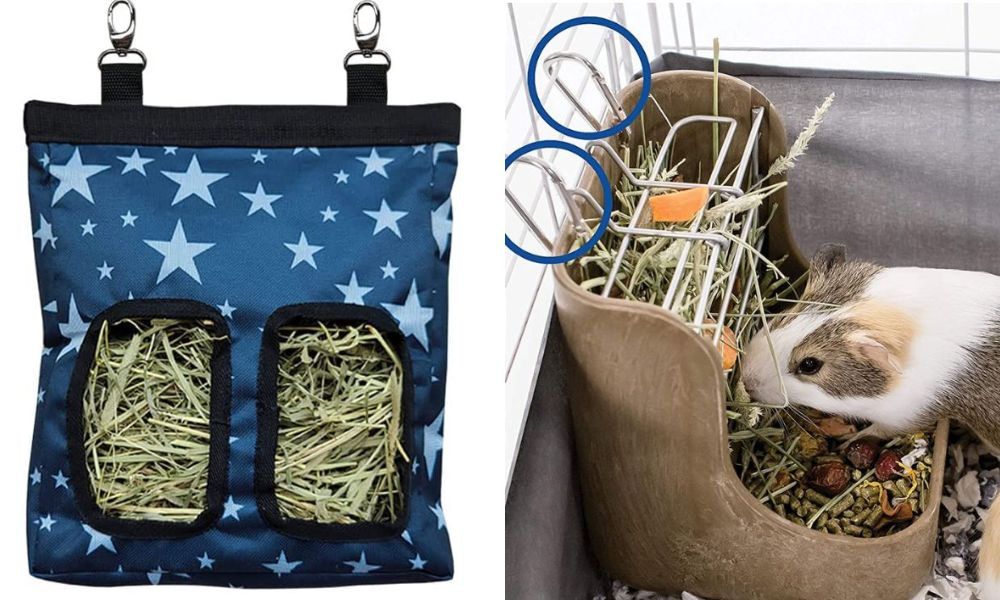
Supplementing with Vegetables
Along with hay, guinea pigs enjoy eating vegetables such as kale, carrots, zucchini, cucumbers, and parsley. Veggies can supplement the nutritional value provided by hay. However, be cautious of the types and quantity of vegetables offered; too much can cause digestive issues in guinea pigs.
Variety Is Key
Hay, which comes in a few different varieties, is essential to your guinea pig's health and happiness. It’s also important to remember that variety is key when choosing the right type of hay for your piggie. Not only will this help ensure they get a well-rounded diet, but it’ll also make mealtime more interesting! There are lots of different types of hays available on the market such as oat hays, grass hays, clover hays, etc., so you can mix things up every once in awhile to keep your pet engaged and their taste buds entertained.
Timothy Hay
The most popular type of hay for guinea pigs is timothy hay. It has a sweet smell and flavor that guinea pigs love, plus it's high in fiber which is important for their digestive system. Timothy Hay is often assumed to be a brand name or make of the hay. It refers to the type of grass that is turned into hay. It can also be referred to as grass hay. Timothy hay should make up 75-80% of your pet’s diet because it provides the necessary nutrients they need to stay healthy. It should also be given in unlimited amounts so they can munch on it throughout the day as much as they want.
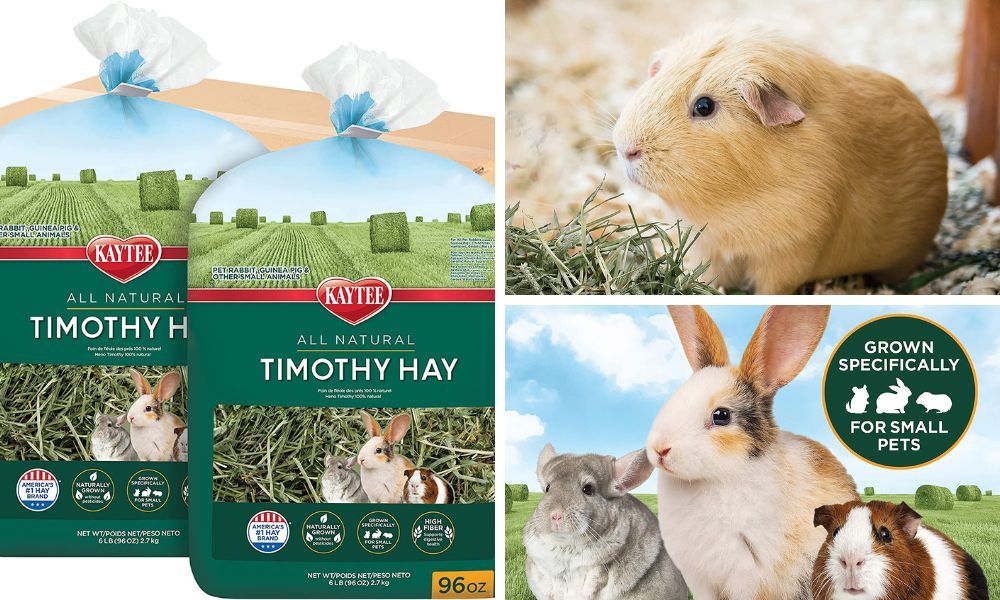
Oat Hay
Another popular choice is oat hay. This type of hay is high in protein and low in sugar which makes it great for guinea pigs with diabetes or weight issues. Oat hay should be given to your pet in limited amounts due to its higher sugar content, but it makes a great supplement to their regular timothy hay diet. Plus, some guinea pigs enjoy its sweet taste!
Orgchard Hay
Orchard hay is another type of grass hay that can be included in your guinea pig’s diet. It has a similar consistency and nutritional value to timothy hay, but some guinea pigs may prefer its taste over other types of hays. Orchard Hay for Guinea Pigs Orchard hay for guinea pigs is an excellent choice for guinea pig parents that are allergic to timothy hay or are wanting to provide some variety into their diet. Orchard hay should also be given in limited amounts due to its higher sugar content.
Alfalfa Hay
Alfalfa is another good option when it comes to feeding your piggie, although it should only make up 10-15% of their overall diet due to its high calcium levels which can cause bladder stones if consumed too often. Alfalfa is full of vitamins and minerals that help keep your pet healthy, so give them a few pieces every now and then as part of a balanced diet. Alfalfa hay can be fed to pets who need to gain weight, but feeding alfalfa depends on the specific needs of the animal.
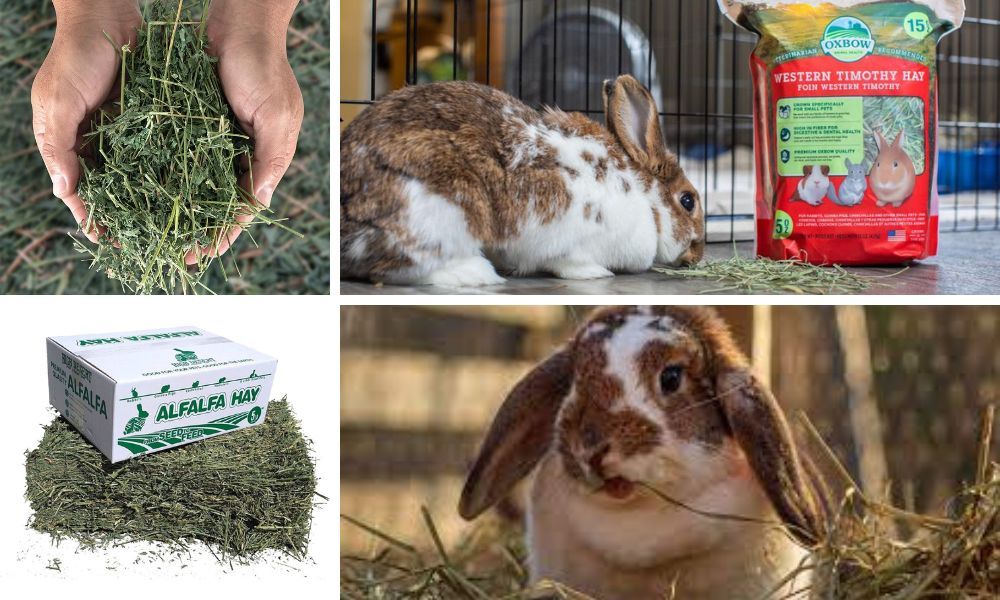
Timothy Hay vs. Alfalfa Hay
One of the most common questions among guinea pig owners is whether Timothy hay or Alfalfa hay is better. The answer depends on what stage of life your pet is in and their individual dietary needs. Generally speaking, Timothy hay is recommended because it contains more fiber, less protein, and fewer calories than Alfalfa hay, making it ideal for adult guinea pigs who need a lower-calorie diet. It also has higher levels of calcium and phosphorus, which are essential for healthy bones and teeth—something all guinea pigs need! On the other hand, baby guinea pigs benefit from a higher-protein diet that Alfalfa hay provides since they are still growing rapidly.
When choosing the best type of hay for your guinea pig, make sure you know what nutrients they need most and look for those specific qualities in different types of hay. Timothy and oat hays are generally good choices since they provide plenty of fiber and other nutrients that keep your pet healthy while also tasting delicious! And remember - alfalfa should only be given occasionally since its high calcium content can lead to bladder stones if consumed too often.
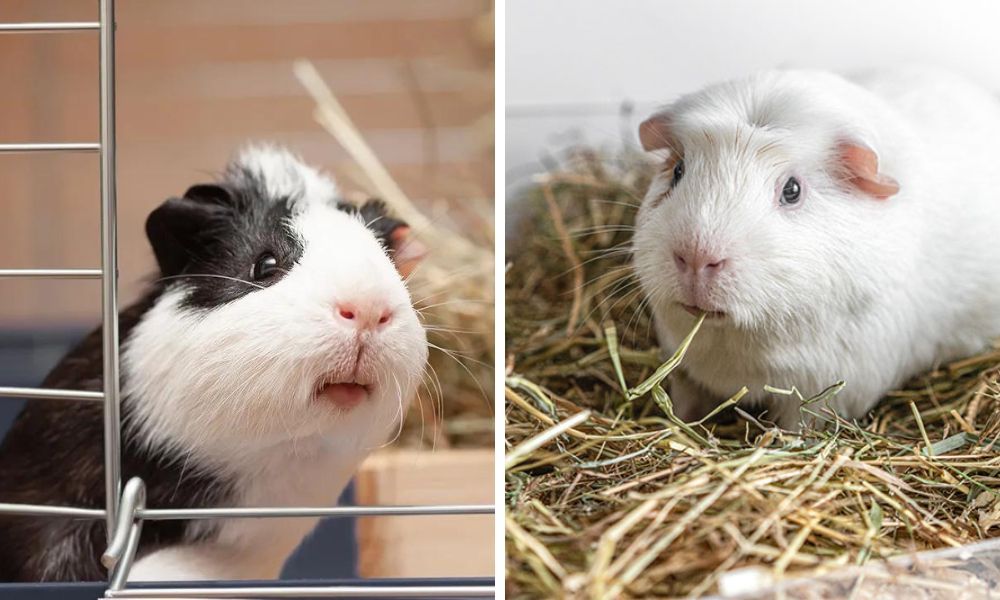
At the end...
In summary, it's essential that you find the right hay for your guinea pig to keep them healthy and happy. Hay is an essential part of the guinea pig diet. Timothy hay, orchard hay, and alfalfa hay are the most common types of hay available. When selecting hay, consider their quality, storage, amounts, and supplementing with vegetables. These tips will help you select the best hay for your guinea pig, ensuring they have a healthy and enriching diet. Remember that while guinea pigs are small, they are not immune to health issues caused by inadequate diet. A healthy diet of hay and veggies goes a long way in keeping your guinea pig active and entertained.
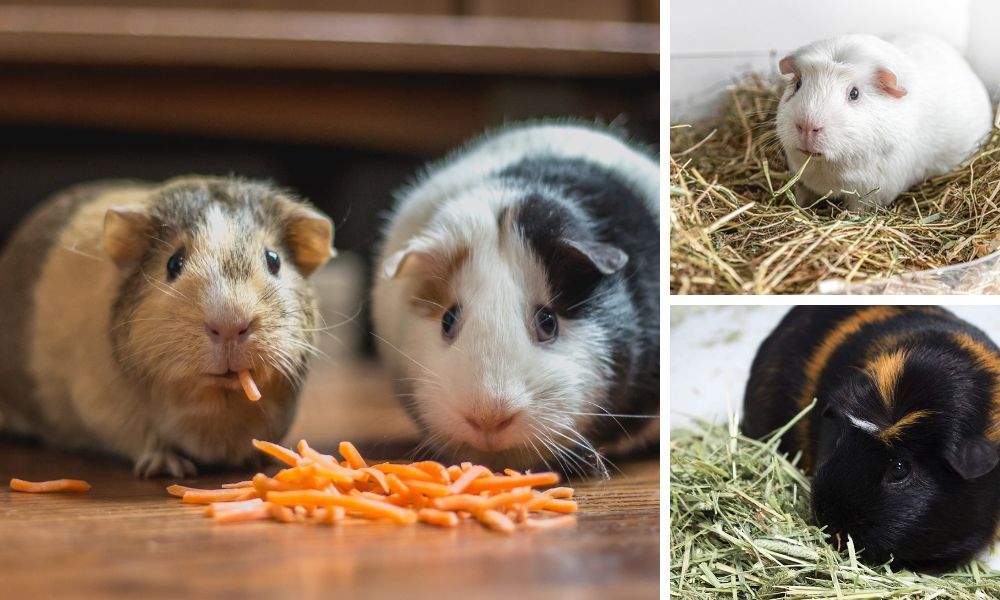
Choosing the right type of hay for your guinea pig doesn't have to be complicated if you know what to look for! Generally speaking, Timothy hay is ideal for adult piggies since it contains lower levels of protein while providing plenty of fiber and essential minerals like calcium and phosphorus. Baby guinea pigs may benefit from a high-protein diet provided by Alfalfa hay as they grow rapidly during this stage of life. Remember that variety is key when selecting the right type of hay so mix things up every now and then with different types like oat hays or grass hays! With these tips in mind you should have no problem finding something that both you and your furry friend can agree upon! Happy Feeding!
In order to help you further we have done all the research for you and put together our list of 5 high quality hays for guinea pigs you can buy today! Tap the button below to see the list now!

